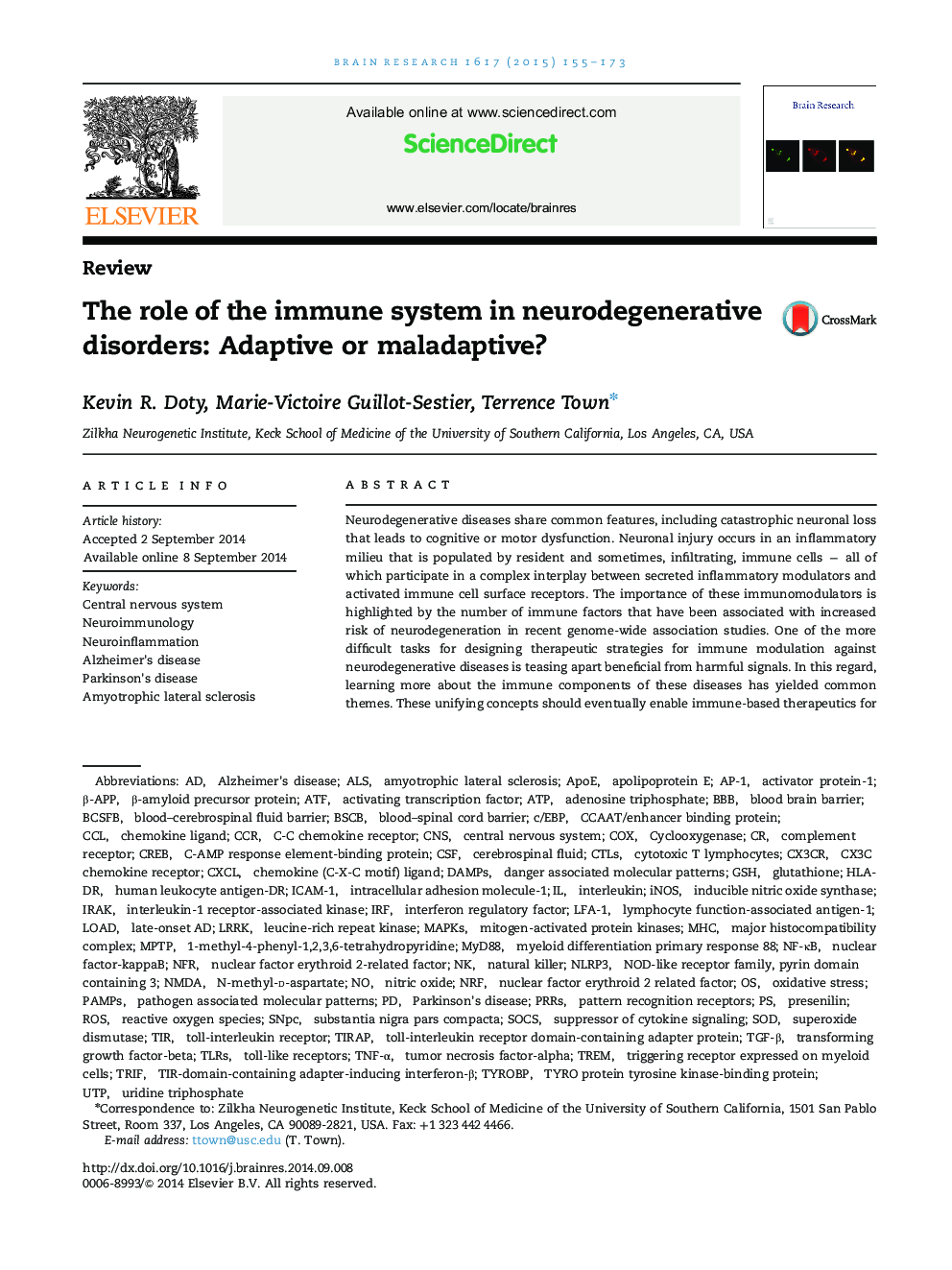| Article ID | Journal | Published Year | Pages | File Type |
|---|---|---|---|---|
| 6263099 | Brain Research | 2015 | 19 Pages |
â¢Teasing apart immune modulation signals is key for neurodegenerative diseases.â¢Determining specific phenotypes of microglia and astrocytes is critical.â¢Engaging beneficial immune responses is important to promote CNS health.â¢One therapeutic target to clear misfolded proteins is phagocytic monocytes.â¢These unifying themes should enable immunotherapeutics against neurodegeneration.This article is part of a Special Issue entitled SI: Neuroimmunology in Health And Disease.
Neurodegenerative diseases share common features, including catastrophic neuronal loss that leads to cognitive or motor dysfunction. Neuronal injury occurs in an inflammatory milieu that is populated by resident and sometimes, infiltrating, immune cells â all of which participate in a complex interplay between secreted inflammatory modulators and activated immune cell surface receptors. The importance of these immunomodulators is highlighted by the number of immune factors that have been associated with increased risk of neurodegeneration in recent genome-wide association studies. One of the more difficult tasks for designing therapeutic strategies for immune modulation against neurodegenerative diseases is teasing apart beneficial from harmful signals. In this regard, learning more about the immune components of these diseases has yielded common themes. These unifying concepts should eventually enable immune-based therapeutics for treatment of Alzheimer׳s and Parkinson׳s diseases and amyotrophic lateral sclerosis. Targeted immune modulation should be possible to temper maladaptive factors, enabling beneficial immune responses in the context of neurodegenerative diseases.This article is part of a Special Issue entitled SI: Neuroimmunology in Health And Disease.
